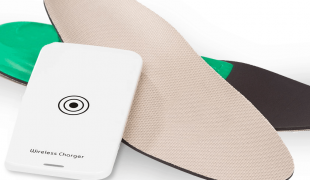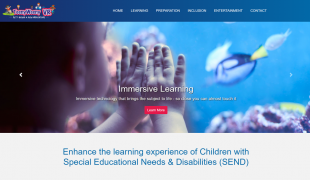- 4351
- 423
- 8
- 7
- 0
- Help Ukraine
About the solution
Angharad, a computational architecture student at the University of the West of England, has a 12-year-old son, Joey, who was diagnosed with autism in 2019. Nowadays, Joey is home-schooled because of the sensory overloading he experienced in classrooms, being particularly affected by sound and vibrations.
Due to a lack of space, funding, and staffing, schools are not able to provide safe places for these children. As Joey’s mother, Angharad had to do something about it. Using the input given by the Bristol's autistic community and the anxiety attacks her son experienced as the starting point, she come up with the idea of the ‘Joey Pods’.
The ‘Joey Pods’ help to reduce the overwhelming feeling many neuro-divergent people experience by putting a barrier between the person and what is happening outside the pod. They are made up of a modular, natural wood structure, which can be reshaped, resized, and dismantled in a matter of minutes, with LED lights and headphones playing calming sounds. Although the idea itself is not totally unique, the deprivation pods already in the UK tend to be very large, inflexible plastic structures, and the ‘Joey Pods’ are more easily installed and adaptable to the space available.
It is expected that they will be introduced into local Bristol schools later this year and then into large events, such as festivals, in 2023. Joey described the feeling of gratification he experienced from his mother’s innovation: "I feel really proud of my mum. I feel really happy that we're having an impact on the world, having an impact on people."
This story was adapted from: https://www.bbc.com/news/uk-england-bristol-61782460
The images were taken from https://www.bbc.com/news/uk-england-bristol-61782460 , as we do not own any of them.
This solution shall not include mention to the use of drugs, chemicals or biologicals (including food); invasive devices; offensive, commercial or inherently dangerous content. This solution was not medically validated. Proceed with caution! If you have any doubts, please consult with a health professional.
DISCLAIMER: This story was written by someone who is not the author of the solution, therefore please be advised that, although it was written with the utmost respect for the innovation and the innovator, there can be some incorrect statements. If you find any errors please contact the patient Innovation team via info@patient-innovation.com
-
-
442
-
2
-
9805

SmartSole GPS - Tracker for people with Alzheimer's, dementia and autism
COMMUNICATION: Communicating, whether by speaking, listening, or other means
WALKING: Walking
CAREGIVING
Alzheimer's Disease
Dementia (Alcoholic Dementia, Vascular Dementia)
Body-Worn solutions (Clothing, accessories, shoes, sensors...)
Difficulty coordinating movements
Loss of balance
Social withdrawal or isolation
Cognitive impairment
Memory loss
Irritability or anger outbursts
Confusion
Restlessness or feeling slowed down
Anxiety
Panic attacks
Difficulty controlling impulses
Mood swings
Feelings of guilt or worthlessness
Suicidal thoughts or behaviors
Hallucinations (perceiving things that aren't there)
Dizziness or lightheadedness
Fatigue
Restoring mobility
Promoting self-management
Building Supportive Community Relationships
Promoting inclusivity and social integration
Improving Speech and Communication
Preventing (Vaccination, Protection, Falls, Research/Mapping)
Raise awareness
Caregiving Support
Child and Adolescent Psychiatry
General and Family Medicine
Internal Medicine
Medical Genetics
Neurology
Pediatrics
Psychiatry
United States
-
-
-
415
-
0
-
4751

Teeny Weeny VR- a new way of terapy for autistic children.
CAREGIVING
COMMUNICATION: Communicating, whether by speaking, listening, or other means
Autism
AI algorithm
Anxiety
Difficulty concentrating or making decisions
Social withdrawal or isolation
Promoting self-management
Managing Neurological Disorders
Building Supportive Community Relationships
Promoting inclusivity and social integration
Improving Speech and Communication
To improve Treatment/Therapy
Preventing (Vaccination, Protection, Falls, Research/Mapping)
Raise awareness
Caregiving Support
Child and Adolescent Psychiatry
General and Family Medicine
Neurology
Pediatrics
Psychiatry
United Kingdom
-
-
-
355
-
0
-
3886

Cláudia Arantes, a palliative care doctor, created the Casa do Cuidar platform that cares for patients facing terminal illnesses.
CAREGIVING
Social interaction
Blood Pressure Disorders
Website
In Person service
Online service
Book/Comic
Managing pain
Enhancing health literacy
Promoting self-management
Building Supportive Community Relationships
Promoting inclusivity and social integration
Enhancing Mental Health
Preventing (Vaccination, Protection, Falls, Research/Mapping)
Raise awareness
Caregiving Support
Child and Adolescent Psychiatry
Dermatology
General and Family Medicine
Internal Medicine
Medical Oncology
Pediatrics
Psychiatry
Vascular Surgery
Brazil
-
 en
en